SUMMARY
This is AI generated summarization, which may have errors. For context, always refer to the full article.
Several senators are considering raising the mandatory retirement age of military and uniformed personnel (MUP) from 56 to 60 years old, in order to cut the ballooning cost of their pension and retirement benefits derived from the national budget yearly.
The Senate committees on national defense and security, government corporations and public enterprises, ways and means, and finance jointly held a hearing on Monday, October 5, on several versions of a “Military and Uniformed Personnel Retirement and Pension Reform” bill.
National defense committee head Senator Panfilo Lacson, who led the virtual hearing, said the panel fears that the pension requirements of MUPs would be unsustainable.
“Certainly, it is high time we created a standalone special fund so that we may deter the inevitable fiscal disaster of draining the public coffers attributed to the bloating pension requirements of our uniformed retirees, which up to this very moment completely rely on the national budget,” Lacson said.
The amount the government spends on pensions grows as batches of personnel retire from the uniformed services every year – the military, police, fire bureau, and the jail management and corrections bureaus.
Of the P3.757 trillion 2019 national budget, P107.2 billion went to MUP pensions. In 2020, the adjusted appropriated amount for these pensions is P80 billion, according to Lacson. In the proposed 2021 national budget, P135.8 billion is allocated for MUP pensions.
The country’s economic managers estimated that the fund for pensions would eventually increase to almost P6 trillion, Lacson added.
Raising the pensionable age from the current 56 to the proposed 60 years old would slow down the yearly increase in spending on pensions, and allow the government to benefit longer from the service of each MUP.
However, changing the mandatory retirement age alone would not solve the problem. Lacson said the Senate is looking for ways to take the burden of MUP pensions off the yearly national budget, and create a self-sustaining fund for it.
Among proposed options is to establish a “corpus fund” from the sale of government assets and properties to derive interest and investment earnings to sustain these pensions. Another proposal is to lease or jointly develop those assets and properties with private groups.
Senators are also looking into adjusting the mandatory contributions from active members of the uniformed services to better sustain the pension fund.
‘We just can’t give what we don’t have’
During the hearing, Senate Minority Leader Franklin Drilon said the government must make “a clear policy decision” on the matter. Senate president pro tempore Ralph Recto said raising the retirement age of MUP to 60 “could lessen the government’s future spending.”
Recto suggested starting a retirement plan with the Government Service Insurance System (GSIS) for new entrants to the military and other uniformed services.
“We just can’t give what we don’t have,” said Senator Richard Gordon. He noted the recent salary increase for members of the military, which will affect the amount of their pensions when they retire.
Gordon is also working on a bill setting fixed terms for officers of the Armed Forces of the Philippines. His subcommittee is considering raising the mandatory retirement age of generals to 62, or even 65 for the chief-of-staff.
During a committee hearing on this proposed measure, Defense Secretary Delfin Lorenzana pointed out the need to maintain a “relatively young” military, especially among enlisted personnel.
The Department of National Defense, under Lorenzana, has been pushing for a military pension reform bill. He noted that a large chunk of the country’s defense budget goes to retirees’ pensions, even as the military pushes hard to modernize its capabilities.
At Monday’s hearing, Defense Undersecretary Cardozo Luna suggested having a separate retirement and pension program for members of the military, because they go through a significantly greater degree of stress during the course of their careers.
To help further defray the costs of maintaining a robust military, Gordon broached the conscription of young people – a two-year “sabbatical” with the military – as practiced in some countries.
In any case, Gordon said a solution to the pension problem must be decided on soon.
“All I’m saying is that we really put all the financial minds of the people together and maybe come out with a suggestion,” Gordon added.
A 2018 actuarial study by the GSIS based on data from 2016 showed it would require “seed money” of P5.5 trillion to start a pension fund for MUP. However, certain reforms can bring the figure down to P2 trillion.
Lacson asked representatives of the uniformed services to submit within 3 days a full list of their personnel who are or will be eligible for pensions and retirement benefits, to give way to a study by the GSIS and the Bureau of the Treasury.
Senators who filed versions of the Military and Uniformed Personnel Retirement and Pension Reform bill were Imee Marcos, Manny Pacquiao, Bong Go, and Ronald dela Rosa.
Lacson said the target should be to pass the proposed measure by the end of 2020. – Rappler.com
Add a comment
How does this make you feel?
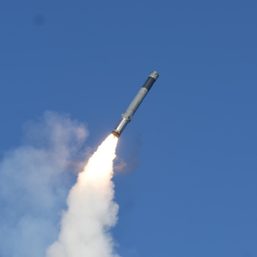

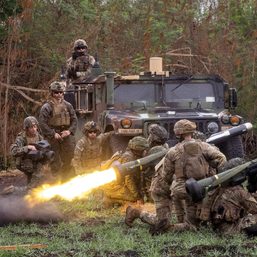
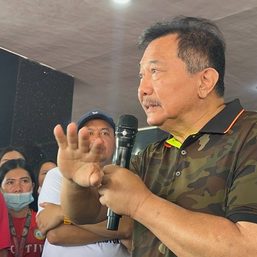
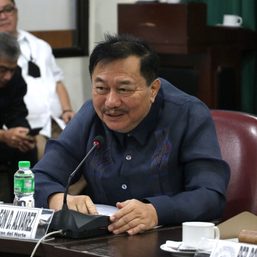
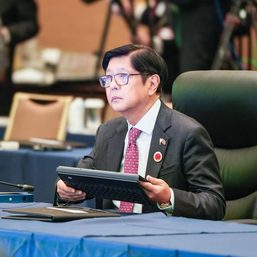

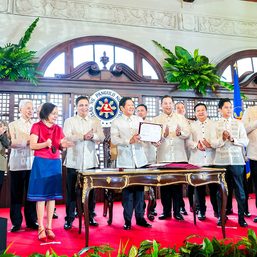
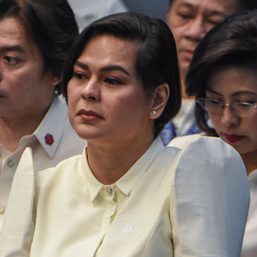


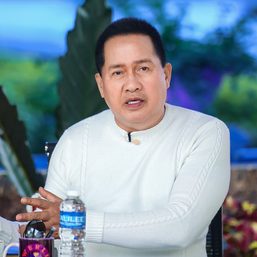


There are no comments yet. Add your comment to start the conversation.